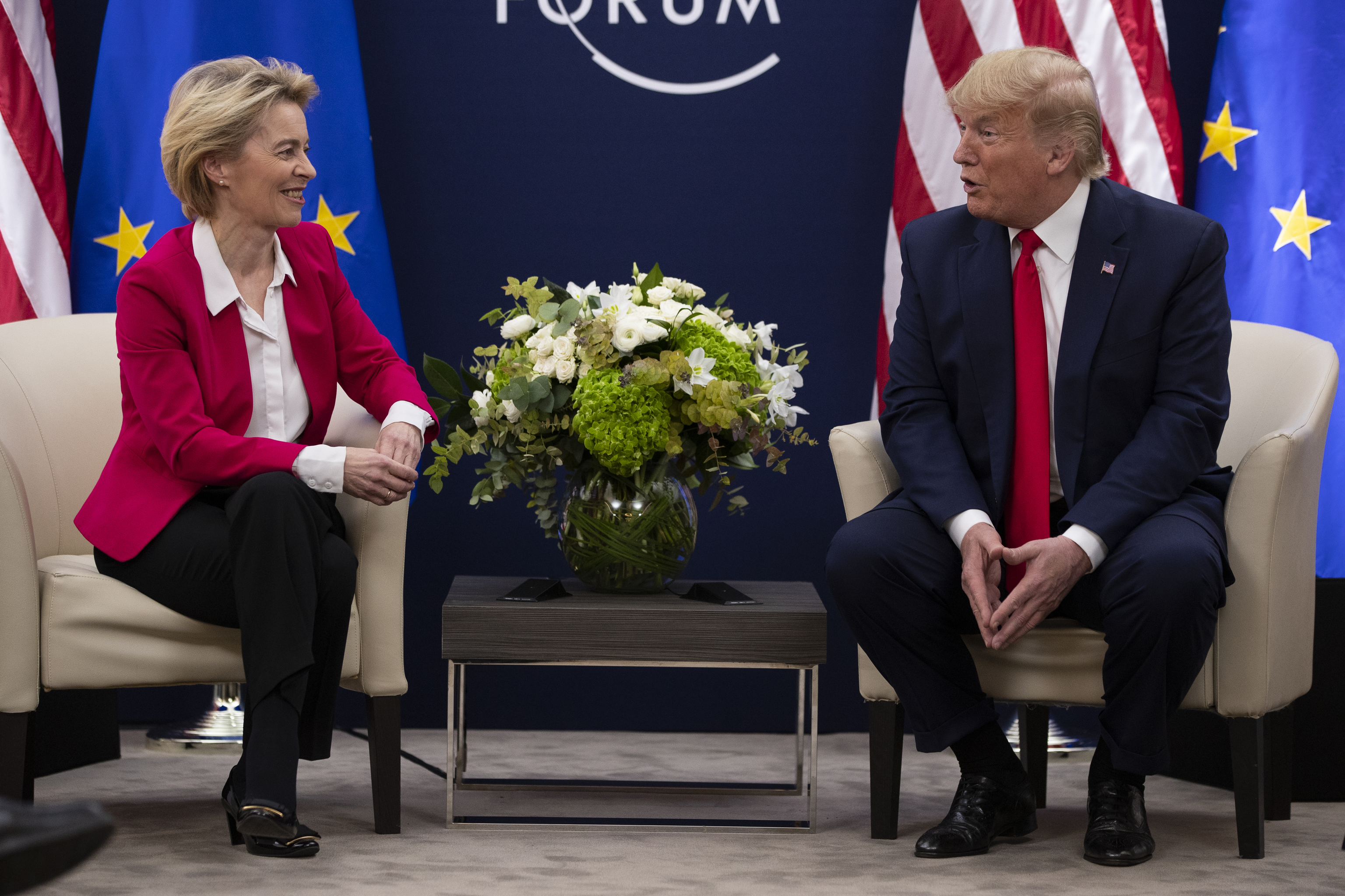Just as he did with Mexico and Canada, or with the so-called "reciprocal tariffs to the rest of the world" on Liberation Day, and later with China, the President of the United States, Donald Trump, has once again made a 180-degree turn, announcing that the threat of 50% tariffs on the European Union from June 1 will not be implemented. This happened after a phone call with the President of the European Commission, Ursula von der Leyen, this Sunday.
"I had a good call with President Trump. The EU and the US share the closest and most important trade relationship in the world. Europe is willing to move forward in the negotiations quickly and decisively, but to reach a good agreement, we will need until July 9," Von der Leyen wrote at 10:00 p.m., Spanish time. Two hours later, Trump responded, also using social media: "Today I received a call from Ursula von der Leyen, President of the European Commission, requesting an extension of the June 1 deadline for the 50% tariff regarding trade with the European Union. I accepted the extension (July 9, 2025). I had the privilege to do so. The Commission President stated that talks will start quickly. Thank you for your attention!"
For Trump, the origin of the call is often much more important than the content of the conversations. For weeks, he was obsessed with the idea that Chinese President Xi Jinping was going to call, because he sees trade relations as a matter of strength and a showdown, for him making a call is begging, pleading, kneeling. Xi never called, but still, Trump said he did. And he repeats the same with the President of the Commission, insisting that she took the first step and that he has had the magnanimity to respond and grant an extension.
In reality, July 9 was the previously planned deadline. Trump announced reciprocal tariffs on April 2, Liberation Day, to take effect a week later. But after seeing the market's reaction, especially in debt markets, he backtracked and suspended them for three months. Until July. There is still a general surcharge of 10%, but not the 20% that was planned for the EU or levels of up to 100% for Asian countries and small territories.
There were only two exceptions. China, which he punished with increasing levels, reaching up to 145% (245% for some products), although he exempted computers, phones, or electronic components. And the EU, which he harshly criticized again last Friday.
"The European Union, created with the main objective of taking advantage of the United States in trade, has been very difficult to manage. Its powerful trade barriers, VAT, ridiculous corporate sanctions, non-monetary trade barriers, currency manipulations, unjustified demands against US companies, among others, have generated a trade deficit with the United States of over 250 million dollars annually, a completely unacceptable figure," he said on his Truth Social account, making a mistake in the figure, missing several zeros. "Our talks with them are not bearing fruit! Therefore, I recommend a direct 50% tariff for the European Union starting on June 1, 2025. No tariff will be applied if the product is manufactured in the United States," he added in his tweet.
Now he returns to the previous scenario, giving time until July for both parties to attempt an agreement. It's difficult. The US negotiates through tweets, outbursts, threats, and shouts. But the European Commission, which has trade competencies in the EU and negotiates on behalf of the 27, does so in a completely technical, legal, and extraordinarily precise manner. It is a slow process, too bureaucratic for Trump and his collaborators, who are frustrated because they cannot act as they do with the US or with other countries, announcing things incompletely. They want fireworks, not details and documents.
But the Commission, which has a lot of experience in this area, does not operate that way. It has been negotiating with other blocs for decades, and these are long and exhausting processes, analyzing product by product, case by case. It needs mandates from the 27, to regularly inform, to address the demands and red lines of each of the national governments. Something that Trump does not understand or tolerate very well. The same happened with Switzerland, with the British during Brexit, and with Latin America, which has not seen the Mercosur treaty prosper in almost 15 years.
